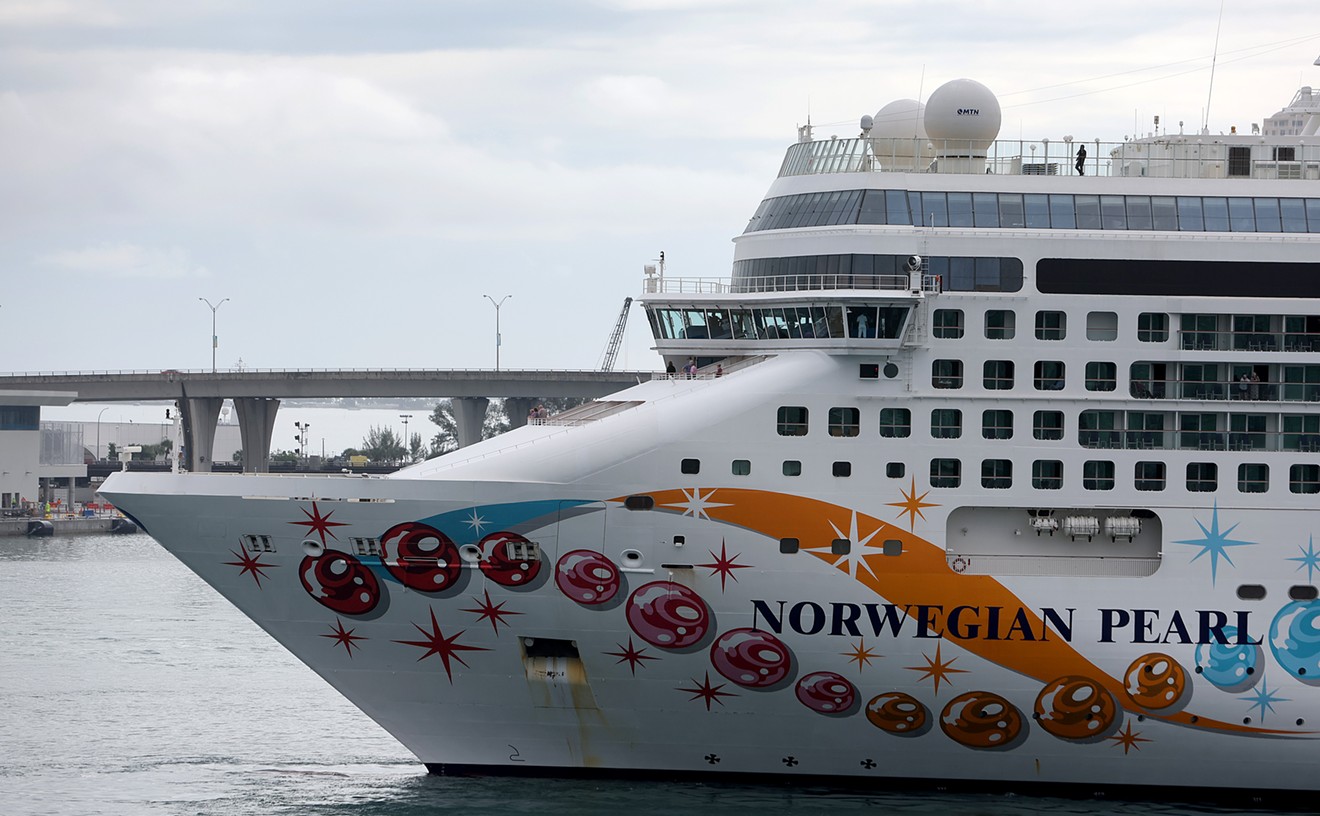Welcome to ground zero for Cuba's burgeoning hip-hop scene -- the weekly gathering of raperos in Alamar, a decaying eastern suburb of Havana. Echoing the music's grassroots origins in the South Bronx some two decades earlier, the setting here is appropriately makeshift: Alamar's piscina grande, the community pool complex, whose managers have been persuaded to temporarily transform the site for a weekly rap concert. The groups are all here now, and the audience is primed and increasing in size by the minute, arriving mostly by foot from the surrounding Soviet-style crumbling housing projects. Unfortunately the microphone cables haven't arrived yet, and so, as with many events in Cuba, we wait.
One light-skinned young man, garbed in a FUBU shirt and a white Panama hat, struts into sight, his arm cocked jauntily inside the crook of his girlfriend's elbow. Suddenly he pivots and continues his pimp walk in Kulchur's direction.
"You're American, right? Me too," he drawls in a novel fusion of Spanish-accented English and gangsta affectation. Reaching into his pocket, he whips out a two-inch-thick roll of U.S. dollars, catching more than a few eyes. “Can you change this for me?” he asks, adding conspiratorially: “If I pull out this American money at the door, they're going to rip me off.”
Something here is not quite right. Kulchur asks just where in the States our new ghetto-fabulous friend was reared. “Minneapolis-Boston,” he answers confidently. Excuse me? “I was raised in the South,” he crows. Apparently the growing Cuban mania for American hip-hop culture (or as it's referred to here, el rap) has spun off its own tangent on the wigger phenomenon, convincing at least one Cuban that he actually is American.
Finally the cables arrive and the crowd begins forking over the 25-centavo admission as they surge inside the sprawling complex. A PA system blasts Big Pun and then Dr. Dre's comeback single as the first of the night's raperos take up their positions onstage --the stairs of the now-drained pool. Their taped musical accompaniment is minimalist, often little more than a solitary looped beat lifted from an American record. But this is no open-mike night. Groups like RCA (the Crazy Rappers from Alamar), Homeboy Criollo, and Onda Expansiva effortlessly work the crowd, trading rapid-fire verses with such enthusiasm and propulsive flow that the “throw your hands in the air and wave 'em like you just don't care” command actually sounds fresh again.
Many of these outfits could ably hold their own as MCs with Miami's finest, but it's the duo of Anonimo Consejo that steals the show. From the moment Yasmel Sarrias and Maigel Entenza Jaramillo launch into their song, the audience goes nuts -- and rightly so. With his hair tightly braided into cornrows, Entenza's face screws up forcefully. He prowls, pantherlike, back and forth on the pool's steps, coiling the microphone cord around his forearm, slinging off verses that build upon one another in intensity. Then, with tag-team precision, Sarrias jumps in, rapping in rolling cadences and punching his fist skyward to roars of approval. Right here, right now Anonimo Consejo are stars.
“There are a number of places we can't play anymore,” Sarrias says somewhat ominously afterward, perched on a wall at the back of the pool alongside Entenza. He blames this blacklisting on their song “Las Apariencios Engañan” (“Appearances Deceive”).
“The whole concept behind our group is the revolution,” he explains, “and changing things about black Cubans' position. That song [“Las Apariencios Engañan'] talks about how as a regular Cuban we can't walk down the street with someone from another country. If the police see us with a foreigner, they get upset and harass us.”
With growing anger he continues, “I've never had the opportunity to travel, but if I did I'd like to be able to meet the people in that country! I don't understand why if we have a revolution here that's about the people, why are they afraid of me having a friend from another country?”
Sarrias recalls one concert several months earlier where they had just finished performing that song. Two police officers took offense at the tune's lyrics and began hauling away the pair. As they were being led off, the crowd surged around them, hollering for the police to let them go. The officers eventually relented, but later that week one of the same policemen spotted Entenza in the street.
“My guy was stopped,” Sarrias says, nodding sideways to Entenza, who though he hasn't yet said a word is visibly upset at this recollection. “The cop said, “Oh, so you're the guy who thinks he's so bad.' They detained him overnight.”
After a long pause Entenza finally says bitterly: “I was arrested as a counterrevolutionary. I'm not against the system, but I'm trying to talk about what's wrong with this country.”
There's a much more pressing concern on Entenza's mind right now, though. “Be honest,” he implores. "How do we compare to the rappers in Miami?"










